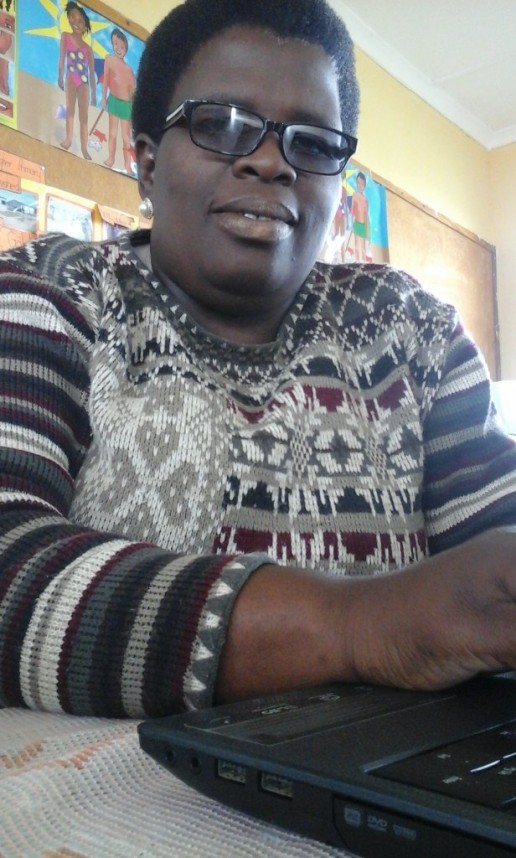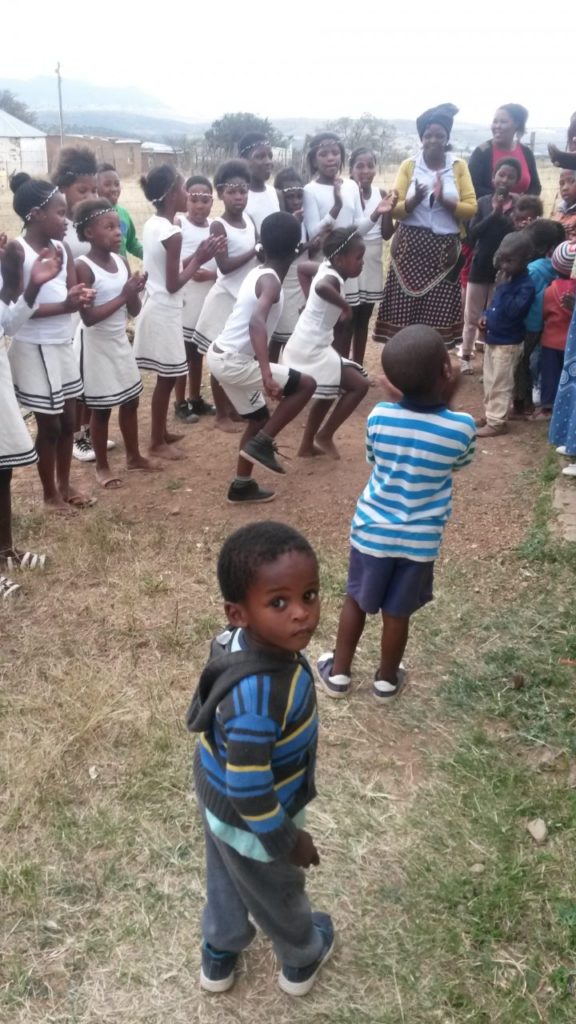South Africa: A hiv-free

“When I was diagnosed with HIV, I could not watch TV. I was afraid of seeing the red ribbon,” Vuyelwa Saule tells at her house in Msobomvu, a village in the Eastern Cape. “HIV is something that affects us all. If you are not infected you are affected. What worries me the most is that a lot of people are still in denial. They don’t want to get tested. It is my dream to make South Africa HIV-free in 10 years. This can only happen if we are open about it, at home, at our place of work, in school, church and within our communities.” How is Vuyelwa breaking the taboo?
Vuyelwa was born and raised in the Eastern Cape and comes from a Xhosa family of ‘Sangoma’, traditional healers. As the only child of her two parents she grew up near East London. When her mother’s health required fresh air, they moved to Msobomvu, from Alice uphill towards the mountains of Hogsback. Vuyelwa’s only son was born in 2000. From the time her mother passed away, she’s been living in a ‘male household’ with her son, her father and – up until his death – her grandfather.
Unable to keep quiet despite the shame
“When I heard the news that I was HIV infected I felt ashamed of myself and I couldn’t tell anyone,” Vuyelwa explains her first response to her positive test in 2009. After a couple of months she couldn’t keep quiet anymore: “There was a friend at church and I talked to her about my diagnosis. I just wanted this thing to come out. I asked her to tell my dad, because I couldn’t face him myself. If my mother were to have been alive it would have been easier. Telling my son was the most difficult thing I ever had to do. When I finally told him, he was shocked. The morning after he went to school. When returning home he said ‘Even though you are infected you are my mother. Nothing will come between us.’ He is my best friend, we can talk about everything.”
Discrimination, denial and lack of knowledge
“People choose not to get tested or to go to the clinic after their diagnosis because they are afraid the nurses will shout at them. I encourage them to go anyway and to follow the doctors’ orders.” Vuyelwa does acknowledge that even among medical staff and within the clinic there’s discrimination of HIV patients: “They have separate rows for two different treatment rooms. When it’s your turn and you are infected, the nurse comes out of the one room with your file in a distinctive color and walks over to see you in the other room.” Word spreading that you have the virus can have trust undermining side effects: “I have men being interested in me who are afraid to get tested and are looking for someone they can point a finger at: ‘she infected me’.” Lack of knowledge is also worrying Vuyelwa: “People don’t know the virus mutates and you can get infected again and may need other medication. And then there’s that idea that sleeping with a virgin can cure you. Where are we going to hide our children?”
Breaking the taboo is a two-way street
“If you have little knowledge about anything that will put you in trouble,” Vuyelwa continues. “So if someone comes to me and asks me about HIV, I will tell them. And I don’t feel offended when the questions get personal. Free yourself by accepting the virus and confiding about your status.
You don’t have to go out and tell the whole community. Find people you can confide in. It was only when I got associated with other people that I didn’t feel isolated anymore. HIV is not a death sentence. You can still fall in love, get married, have children. I’ve been living with HIV and I became friends with the virus. You have to love and take good care of yourself. And don’t stick around people who discriminate you because of it, because judgement can emotionally kill people.” Vuyelwa does emphasize that breaking the taboo is a two-way street: “When you are infected you need to tell people about it and educate them on what they can and cannot do around you. Then it’s up to them to accept you.”
Vuka Mama, woman arise!
Trained in IT and active at church, Vuyelwa worked for several NGO’s and is currently in a job as an administrator at the local primary school in Msobomvu. When it comes to breaking the taboo on HIV and Aids, she says: “I don’t belong to any organization. But if people ask me, I will come tell my story, as a motivational speaker, for instance. And when the women of ‘Vuka Mama’ came to me for advise on fundraising and training, I decided to support them.” Vuka Mama is a local initiative of women in Msobomvu to cook meals for children who are orphaned or otherwise affected by HIV and Aids. The organization also runs a support program for infected adults. “On the first meeting of Vuka Mama I felt some people knew about my status,” Vuyelwa explains. “I told them that they could ask me anything. Everybody looked down to the ground, so I decided to open up myself. Once I told my story, everyone started sharing their own. I believe we can beat HIV, if we stand together as women of South Africa.”
Interviewer and author: Lisa Koolhoven
This story is part of the ‘Female Change Agents’-movement, an interactive story building and connecting initiative by Michèle Twomey, Iris Hofstetter, and Lisa Koolhoven.
For more information on the Female Change Agents initiative in general click here.


